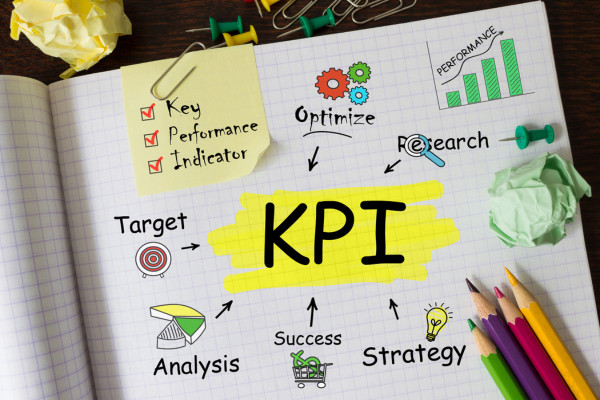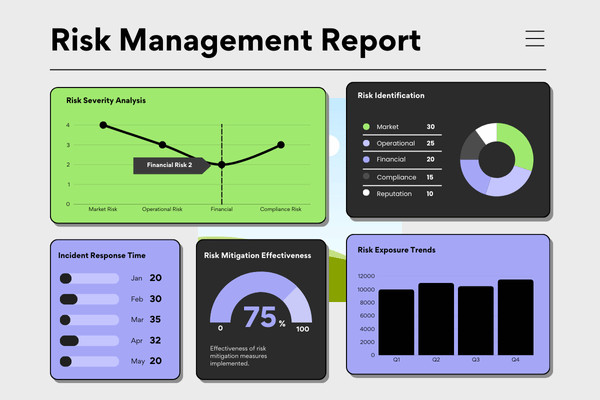
This post is part of the "Strategic Growth Series: 11 Key Operational Areas for Success" series, which covers the 11 essential operational areas that every service-based business needs to master. In this segment - segment #6, I focus on leadership strategies for entrepreneurs - including solopreneurs to help lead with confidence and achieve business goals.
Introduction: Leadership isn’t just for CEOs of large corporations; it’s equally crucial for entrepreneurs - including solopreneurs. As the head of a small business, you wear many hats—often juggling operations, marketing, customer service, and more. Effective leadership can be the difference between simply managing a business and driving it toward long-term success. In this post, I’ll explore leadership strategies tailored specifically for entrepreneurs - including solopreneurs, helping you to lead with confidence, inspire others, and achieve your business goals.
Section 1: Why Leadership Matters for Small Businesses. Even in a small business, strong leadership is essential. Your leadership style sets the tone for how your business operates, how decisions are made, and how you interact with customers, partners, and any team members you may have.
- Vision and Direction: As a leader, it’s your job to set a clear vision for your business and ensure that every decision aligns with that vision.
- Motivation and Inspiration: Effective leadership isn’t just about managing tasks; it’s about motivating yourself and any team members to strive for excellence.
- Problem-Solving: Strong leadership helps you navigate challenges, make tough decisions, and find innovative solutions to business problems.
Section 2: Key Leadership Strategies for Entrepreneurs - Including Solopreneurs
- Lead by Example: As the face of your business, your actions set the standard. Demonstrate the work ethic, integrity, and dedication you expect from others.
- Example: If you want to foster a culture of punctuality and professionalism, ensure that you are always on time and prepared for meetings.
- Embrace Continuous Learning: The business landscape is constantly evolving. Stay ahead by continually seeking new knowledge and skills that can help you lead more effectively.
- Example: Invest in courses, attend workshops, or read books on leadership, marketing, and business management to sharpen your skills.
- Delegate When Possible: Even as a solopreneur, it’s important to recognize when to delegate tasks. Whether it’s outsourcing certain functions or using automation tools, delegation frees up your time to focus on strategic leadership.
- Example: Outsource bookkeeping or administrative tasks so you can concentrate on growing your business.
- Build a Network: Surround yourself with a supportive network of peers, mentors, and advisors who can offer guidance, feedback, and encouragement.
- Example: Join industry groups or local business networks where you can connect with other entrepreneurs facing similar challenges.
- Practice Self-Care: Leading a business can be demanding. Prioritize self-care to maintain your energy, creativity, and decision-making abilities.
- Example: Schedule regular breaks, exercise, and set boundaries to avoid burnout.
Section 3: How to Apply Leadership in Daily Operations. Leadership isn’t just about big-picture strategy—it’s also about how you manage your daily operations:
- Set Clear Goals: Define specific, actionable goals for your business and regularly review your progress. This keeps you focused and accountable.
- Example: Set weekly or monthly revenue targets and break them down into daily tasks that drive toward those goals.
- Communicate Effectively: Whether you’re working with clients, suppliers, or a small team, clear and open communication is key to effective leadership.
- Example: Use tools like Slack or Zoom to stay in regular contact and ensure everyone is aligned with your business goals.
- Adapt and Innovate: The ability to adapt to changes and continuously innovate is a hallmark of strong leadership. Stay flexible and open to new ideas and approaches.
- Example: If a particular marketing strategy isn’t delivering results, be willing to pivot and try something new.
Section 4: The Impact of Effective Leadership on Your Business. Strong leadership can have a profound impact on your business:
- Increased Productivity: When you lead with clarity and purpose, you’re more likely to stay focused, make efficient decisions, and keep your business moving forward.
- Stronger Relationships: Effective leadership helps you build stronger relationships with customers, partners, and team members, which can lead to repeat business and referrals.
- Greater Resilience: As a leader, you’ll be better equipped to handle setbacks and challenges, ensuring your business can weather difficult times and emerge stronger.
Conclusion: Leadership is a critical component of success for entrepreneurs - including solopreneurs. By leading with vision, continuously learning, and effectively managing your daily operations, you can drive your business toward long-term success.
FREE RESOURCE
Ready to strengthen your leadership skills and drive your business toward long-term success? Download my FREE Business Strategy Self-Audit Workbook by clicking HERE. This comprehensive guide covers all 11 essential operational areas every service-based business must master—including Leadership Strategies. Use it to assess your leadership approach, identify areas for growth, and set a clear vision to lead with confidence and achieve your business goals.
JOIN THE CONVERSATION!
What’s the biggest leadership challenge you’ve faced as an entrepreneur or solopreneur? How have you worked to overcome it, and what leadership strategies have had the most impact on your business? Share your experiences in the comments—I’d love to hear your insights and connect with you!

This post is part of the "Strategic Growth Series: 11 Key Operational Areas for Success" series, which covers the 11 essential operational areas that every service-based business needs to master. In this segment - segment #4, I focus on the power of KPIs and how to use them effectively to track business success.
Introduction: In the world of business, success is not just about working hard—it’s about working smart. To ensure your efforts are leading to tangible results, you need a clear way to measure progress and performance. That’s where Key Performance Indicators (KPIs) come into play. KPIs are powerful tools that help you track your business’s success, identify areas for improvement, and make informed decisions that drive growth. In this post, I’ll explore the power of KPIs, why they matter, and how to use them effectively in your business.
Section 1: What Are KPIs and Why Are They Important? Key Performance Indicators (KPIs) are measurable values that indicate how well your business is achieving its key objectives. They provide a clear picture of your business’s performance in critical areas, helping you understand what’s working and what needs improvement.
- Monitor Progress: KPIs allow you to track your progress toward specific business goals, ensuring that you stay on course and make adjustments as needed.
- Improve Decision-Making: By providing concrete data, KPIs enable you to make informed decisions based on real-time insights rather than guesswork.
- Drive Accountability: KPIs help establish clear performance expectations for you and your team, fostering a culture of accountability and continuous improvement. For entrepreneurs, this means setting your own performance standards and tracking your progress toward those goals.
- Support Strategic Planning: KPIs align with your overall business strategy, helping you measure the effectiveness of your initiatives and adjust your approach as needed.
Section 2: How to Choose the Right KPIs for Your Business. Choosing the right KPIs is crucial to effectively tracking your business’s success. Here’s how to identify the KPIs that matter most:
- Align with Business Goals: Start by identifying your most important business goals, such as increasing revenue, improving customer satisfaction, or enhancing operational efficiency. Your KPIs should directly align with these goals.
- Example: If your goal is to increase customer retention, a relevant KPI might be the customer retention rate or customer satisfaction score.
- Focus on Key Metrics: Avoid the temptation to track too many KPIs. Focus on a handful of key metrics that have the greatest impact on your business’s success.
- Example: For a service-based business, key KPIs might include client acquisition cost, average revenue per client, and client retention rate.
- Make KPIs Measurable and Actionable: Choose KPIs that are easy to measure and provide actionable insights. This ensures that you can track progress accurately and make informed decisions.
- Example: Instead of a vague KPI like “improve marketing,” use a specific, measurable KPI such as “increase website conversion rate by 15% over the next quarter.”
- Review and Adjust Regularly: KPIs should not be static. Regularly review your KPIs to ensure they remain relevant and adjust them as your business goals evolve.
- Example: If you introduce a new service offering, you might need to add or adjust KPIs to track its performance.
Section 3: How to Use KPIs Effectively. Once you’ve identified the right KPIs, the next step is to use them effectively to drive business success:
- Set Clear Targets: Define specific targets for each KPI, so you know what success looks like. These targets should be challenging yet achievable.
- Example: Set a target to reduce customer acquisition costs by 10% within six months.
- Monitor KPIs Regularly: Track your KPIs on a regular basis—whether it’s weekly, monthly, or quarterly—depending on the metric. Regular monitoring allows you to identify trends and address issues promptly.
- Example: Review your KPIs in monthly team meetings or with a trusted advisor to assess progress and discuss strategies for improvement.
- Analyze and Interpret Data: Use your KPIs to analyze and interpret business performance. Look for patterns, trends, and correlations that can inform your decisions.
- Example: If you notice a dip in client satisfaction scores, investigate the root cause and take corrective action.
- Communicate with Your Team: Share KPI data with your team or other relevant stakeholders to keep everyone aligned and focused on key business objectives. Use KPIs to drive accountability and foster a results-oriented culture.
- Example: Display KPIs on a dashboard or in meetings to keep everyone informed of progress and areas needing attention. For solopreneurs, this might mean reviewing your KPIs regularly with trusted advisors or mentors.
Section 4: The Benefits of Tracking KPIs. Tracking KPIs effectively offers numerous benefits to your business:
- Enhanced Performance: By continuously monitoring KPIs, you can make data-driven adjustments that improve performance and drive growth.
- Improved Resource Allocation: KPIs help you allocate resources more effectively, focusing on areas that yield the highest returns.
- Greater Agility: Regular KPI tracking enables you to quickly respond to changes in the market or business environment, keeping you agile and competitive.
- Increased Accountability: Clear KPIs create a culture of accountability, where everyone knows what’s expected and works toward common goals.
Conclusion: KPIs are powerful tools that can help you track your business’s success, make informed decisions, and drive growth. By choosing the right KPIs, setting clear targets, and regularly monitoring progress, you can ensure that your business stays on the path to success.
FREE RESOURCE
Ready to take the guesswork out of tracking your business’s success? Download my FREE Business Strategy Self-Audit Workbook by clicking HERE. This comprehensive guide covers all 11 essential operational areas every service-based business must master—including KPIs and performance tracking. Use it to identify the key metrics that matter most for your goals and build a strategy that ensures measurable, sustainable growth.
JOIN THE CONVERSATION!
What are the key metrics you track to measure success in your business? Have you faced any challenges in identifying or monitoring the right KPIs? Share your insights and experiences in the comments—I’d love to hear how you’re using data to drive growth and stay on track with your goals!










